Business
Nigeria’s oil production decreased to 1.08m b/d in July

Nigeria’s crude oil production decreased in July to an average of 1.08 million barrels per day (bpd) from 1.16 million the previous month.
The Nigerian Upstream Petroleum Regulatory Commission (NUPRC) said this in its latest crude oil and condensate production data for July 2022.
The report shows a 6.42 percent decrease from June’s production figures.
With the addition of condensate, oil output in July grew to a total of 1.31 million bpd from 1.40 million posted last month.
Condensate is a mixture of light liquid hydrocarbons, similar to a light (high API) crude oil — usually separated out of a natural gas stream at the point of production (field separation) when the temperature and pressure of the gas are dropped to atmospheric conditions.
In January, February, March, April, and May, the country’s crude oil production averaged 1.39 million bpd, 1.25 million bpd, 1.24 million bpd, 1.22 million bpd, and 1.02 million bpd, respectively.
Nigeria has consistently failed to meet the 1.8 million bpd production quota set by the Organisation of Petroleum Exporting Countries (OPEC).
In March, Timipre Sylva, minister of state for petroleum resources, had said poor investment and the exit of oil majors were affecting Nigeria’s ability to meet the oil production quota.
He also mentioned security issues as another major factor contributing to the lack of significant growth of the sector, adding that the drive towards renewable energy by climate enthusiasts had discouraged funding for the industry.
Recently, OPEC and its allies, known as OPEC+, agreed to raise September’s oil output target by 100,000 barrels bpd – in what appears to be a snub to US President Joe Biden’s call for a more robust increase which could lead to an easing of global supply pressures.
The group cited low investment in the global oil sector, and unavailability of excess capacity, as reasons for the small increase.
Nonetheless, for Nigeria, low crude oil production means reduced income as the country struggles to cover the cost of imported petrol from its oil and gas revenue.
“We are not seeing the revenues that we had planned for. When the production is low it means we’re … barely able to cover the volumes that are required for the (petrol) that we need to import,” Zainab Ahmed, minister of finance, budget and national planning had said.
Business
Ikeja Electric slashes Tariff for Band A customers
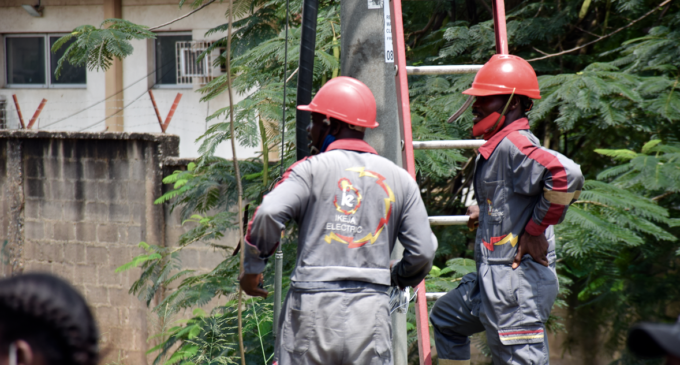
Ikeja Electric Distribution Company (IE) has announced the reduction of its electricity tariff for customers under Band A from N225/kWh to N206.80/kWh.
In a circular signed by the management of the company on Monday, IE said the customers will now pay N206.80/kwh, rather than the stipulated N225/kwh ordered by the Nigeria Electricity Regulatory Commission (NERC).
According to the statement, IE guaranteed to provide 20 to 24 hours of electricity to users under this Band, adding that the tariff for customers under other categories will remain the same.
“Dear Esteemed Customers
“Please be informed of the downward tariff review of our Band A feeders from N225/kwh to N206.80/kwh effective 6th May 2024 with guaranteed availability of 20-24hrs supply daily.The tariff for Bands B, C, D, and E remains unchanged.
“Signed: Management.”
Business
‘Due to CBN directive’ — OPay to close accounts trading crypto

OPay, a Nigerian-based financial technology firm, has warned its customers against using their accounts to facilitate cryptocurrency transactions.
The fintech firm, in a statement on Friday, said due to a directive from the Central Bank of Nigeria (CBN), it will close accounts involved in crypto trading.
The statement follows the recent directive by CBN to some financial technology companies (Fintechs) to pause the onboarding of new customers until further notice.
Some fintech firms confirmed compliance with the CBN directive on April 30.
In the statement, OPay said in “compliance with the CBN directive, please note that OPay prohibits any cryptocurrency and all virtual currency trading”.
“Any account engaging in such activities will be closed, and customer information will be shared with regulatory authorities,” OPay said.
“Please ensure that your account does not involve any cryptocurrency or any other virtual currency transaction.”
On April 24, a federal high court in Abuja delivered a ruling that granted an interim order to the Economic and Financial Crimes Commission (EFCC) to freeze at least 1,146 bank accounts belonging to individuals and companies over “unauthorised foreign exchange” transactions.
TheCable Index analysis of the 1,146 accounts showed 90 percent of the affected accounts are operated by commercial banks, while 10 percent are operated by fintechs.
Business
FIRS asks banks to charge stamp duty on mortgaged-backed loans
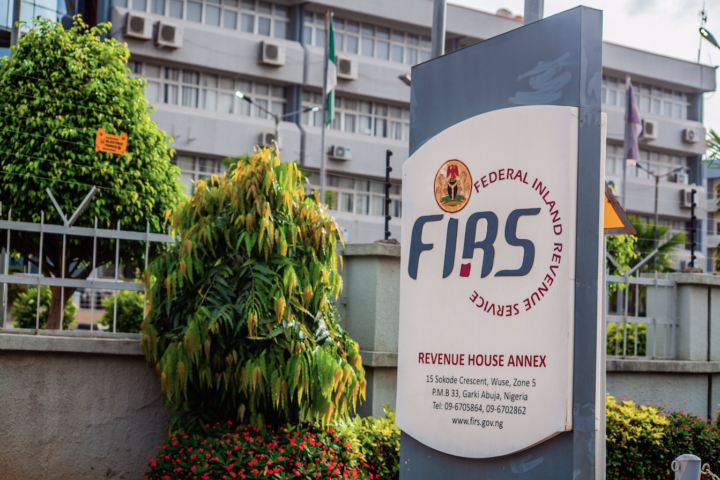
The Federal Inland Revenue Service (FIRS) has asked banks to deduct a 0.375 percent stamp duty charge on all mortgaged-backed loans and bonds.
Mortgage-backed loans are loans banks extend to individuals or entities to buy a home and repay the loan amount over time with interest.
Stamp duty is a levy charged on physical and electronic instruments or documents.
In an email sent by Access Bank to customers on Thursday, the new directive which took immediate effect, does not affect old loans with already agreed terms and conditions.
“We would like to inform you that the Federal Inland Revenue Service (FIRS) has directed all Nigerian banks to implement stamp duty on certain transactions that require duty payments such as contracts and legal mortgages,” Access Bank said.
“In compliance with this directive, we have taken measures to streamline the process to make transactions more convenient for you.
“To this end, a stamp duty charge of 0.375% will be applied to loans backed by legal mortgage, shares, debentures, or bonds. The charge will be applied on the value of the legal mortgage, shares, debentures or Bonds and remitted to the Federal Inland Revenue Services.
“However, all previously approved loans will remain unchanged and should be repaid in full as per the agreed terms and conditions.
“We are committed to providing you with exceptional service.”
The development follows FIRS’ effort to increase federal government revenue through taxes.
-

 Crime7 days ago
Crime7 days agoUK-based Nigerian doctor, Tijion Esho loses licences over sex for free Botox injections
-
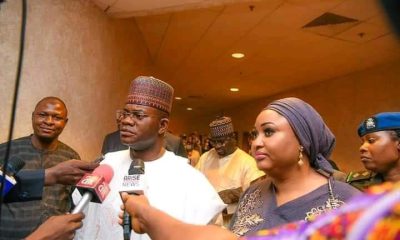
 News1 week ago
News1 week ago‘Mischievous narrative’ — Yahaya Bello’s media office reacts to ‘American school refunding $760k’ claim
-

 Entertainment7 days ago
Entertainment7 days agoGunmen abduct singer Gnewzy in Delta, demand $200k ransom
-

 Entertainment1 week ago
Entertainment1 week agoFamily announces burial arrangements for junior pope
-
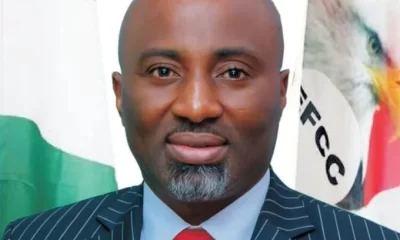
 News1 week ago
News1 week agoShake-up in EFCC as Olukoyede appoints chief of staff, 14 directors
-

 Celebrities6 days ago
Celebrities6 days agoDavido claims Wizkid begged him to join proposed joint tour
-

 Entertainment1 week ago
Entertainment1 week agoDoris Simeon reveals why she relocated to America
-
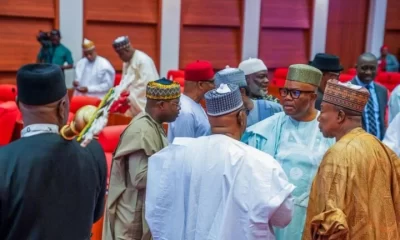
 News6 days ago
News6 days agoRowdy session as senators fight over seats in refurbished chamber

















